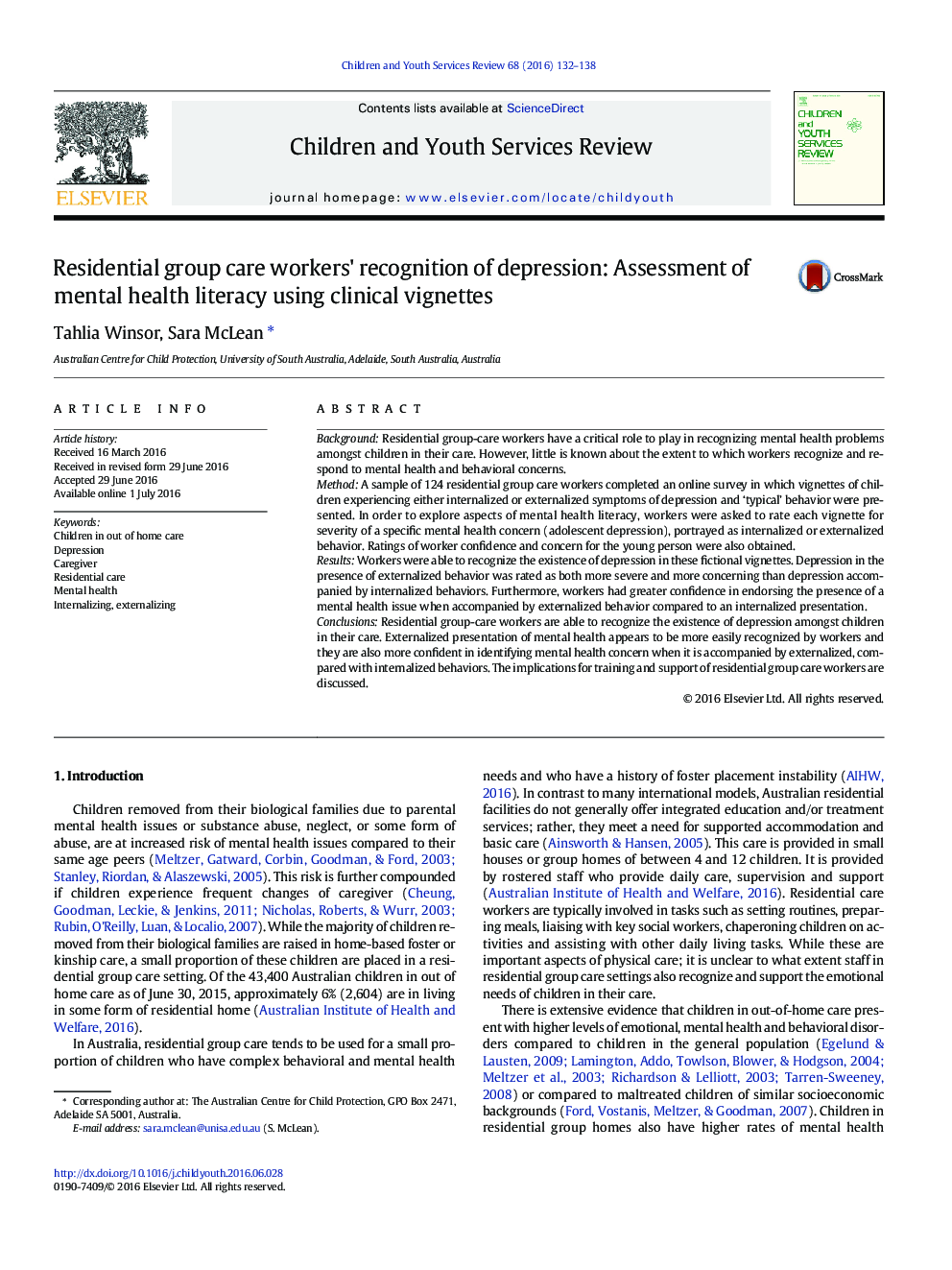| کد مقاله | کد نشریه | سال انتشار | مقاله انگلیسی | نسخه تمام متن |
|---|---|---|---|---|
| 345789 | 617765 | 2016 | 7 صفحه PDF | دانلود رایگان |
• Depression and other mental health concerns are common amongst children in residential group care.
• Workers' capacity to recognize mental health concerns in youth has not been explored.
• Vignettes depicting youth with externalized and internalized depression were rated for severity.
• Externalized depression vignette received higher severity and concern ratings.
• The implications for training and support of residential group care workers are discussed.
BackgroundResidential group-care workers have a critical role to play in recognizing mental health problems amongst children in their care. However, little is known about the extent to which workers recognize and respond to mental health and behavioral concerns.MethodA sample of 124 residential group care workers completed an online survey in which vignettes of children experiencing either internalized or externalized symptoms of depression and ‘typical’ behavior were presented. In order to explore aspects of mental health literacy, workers were asked to rate each vignette for severity of a specific mental health concern (adolescent depression), portrayed as internalized or externalized behavior. Ratings of worker confidence and concern for the young person were also obtained.ResultsWorkers were able to recognize the existence of depression in these fictional vignettes. Depression in the presence of externalized behavior was rated as both more severe and more concerning than depression accompanied by internalized behaviors. Furthermore, workers had greater confidence in endorsing the presence of a mental health issue when accompanied by externalized behavior compared to an internalized presentation.ConclusionsResidential group-care workers are able to recognize the existence of depression amongst children in their care. Externalized presentation of mental health appears to be more easily recognized by workers and they are also more confident in identifying mental health concern when it is accompanied by externalized, compared with internalized behaviors. The implications for training and support of residential group care workers are discussed.
Journal: Children and Youth Services Review - Volume 68, September 2016, Pages 132–138
